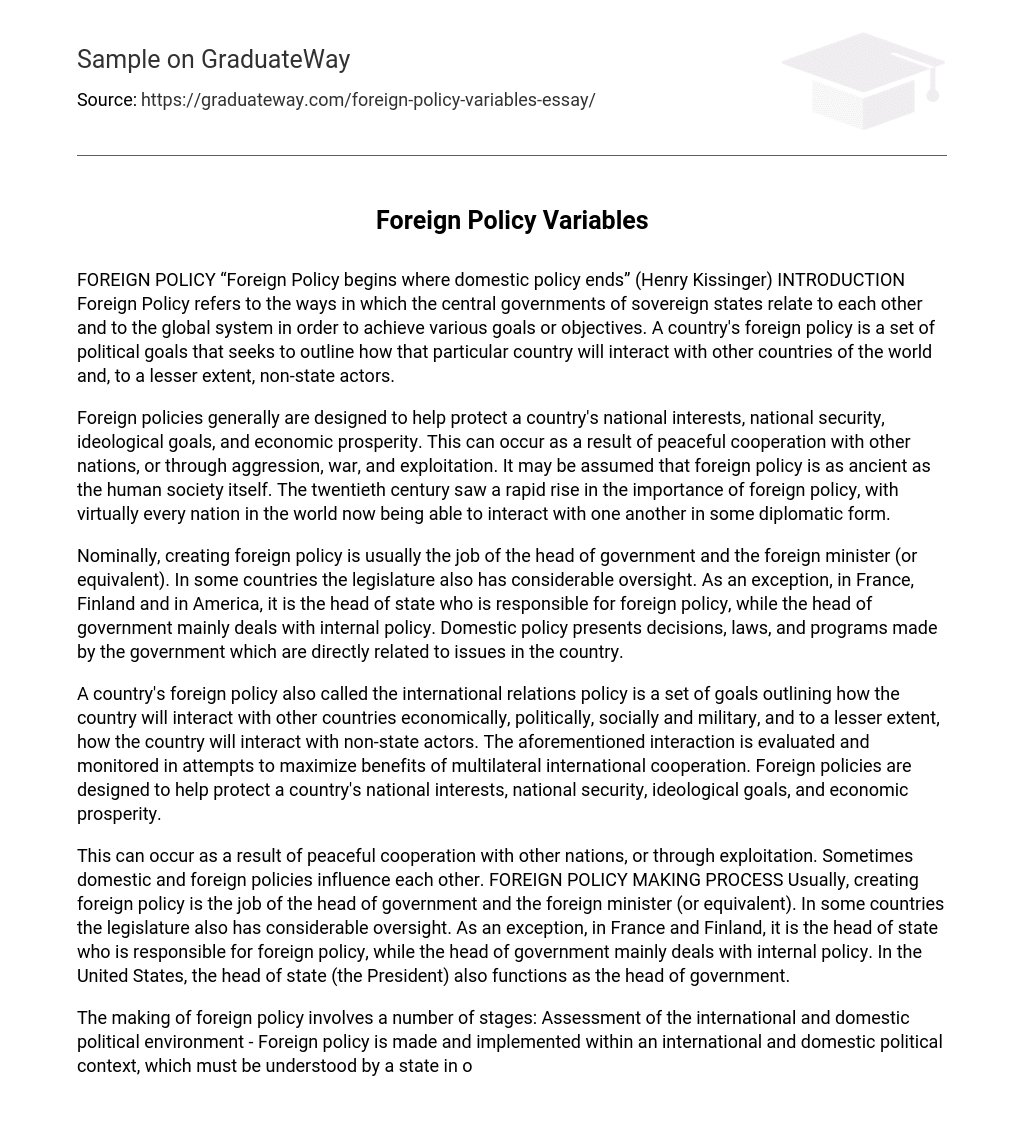FOREIGN POLICY “Foreign Policy begins where domestic policy ends” (Henry Kissinger) INTRODUCTION Foreign Policy refers to the ways in which the central governments of sovereign states relate to each other and to the global system in order to achieve various goals or objectives. A country’s foreign policy is a set of political goals that seeks to outline how that particular country will interact with other countries of the world and, to a lesser extent, non-state actors.
Foreign policies generally are designed to help protect a country’s national interests, national security, ideological goals, and economic prosperity. This can occur as a result of peaceful cooperation with other nations, or through aggression, war, and exploitation. It may be assumed that foreign policy is as ancient as the human society itself. The twentieth century saw a rapid rise in the importance of foreign policy, with virtually every nation in the world now being able to interact with one another in some diplomatic form.
Nominally, creating foreign policy is usually the job of the head of government and the foreign minister (or equivalent). In some countries the legislature also has considerable oversight. As an exception, in France, Finland and in America, it is the head of state who is responsible for foreign policy, while the head of government mainly deals with internal policy. Domestic policy presents decisions, laws, and programs made by the government which are directly related to issues in the country.
A country’s foreign policy also called the international relations policy is a set of goals outlining how the country will interact with other countries economically, politically, socially and military, and to a lesser extent, how the country will interact with non-state actors. The aforementioned interaction is evaluated and monitored in attempts to maximize benefits of multilateral international cooperation. Foreign policies are designed to help protect a country’s national interests, national security, ideological goals, and economic prosperity.
This can occur as a result of peaceful cooperation with other nations, or through exploitation. Sometimes domestic and foreign policies influence each other. FOREIGN POLICY MAKING PROCESS Usually, creating foreign policy is the job of the head of government and the foreign minister (or equivalent). In some countries the legislature also has considerable oversight. As an exception, in France and Finland, it is the head of state who is responsible for foreign policy, while the head of government mainly deals with internal policy. In the United States, the head of state (the President) also functions as the head of government.
The making of foreign policy involves a number of stages: Assessment of the international and domestic political environment – Foreign policy is made and implemented within an international and domestic political context, which must be understood by a state in order to determine the best foreign policy option. For example, a state may need to respond to an international crisis. Goal setting – A state has multiple foreign policy goals. A state must determine which goal is affected by the international and domestic political environment at any given time.





